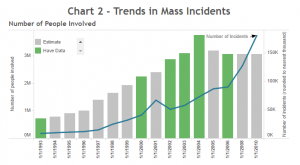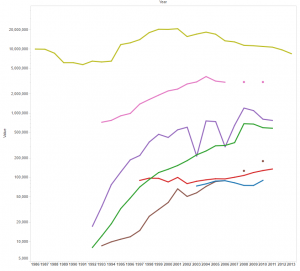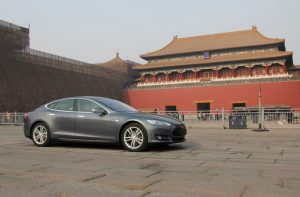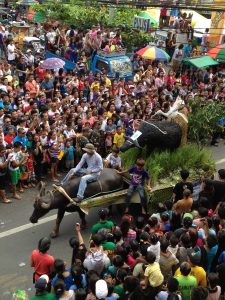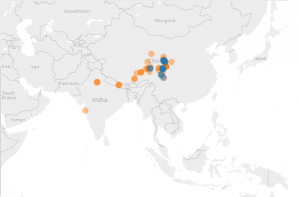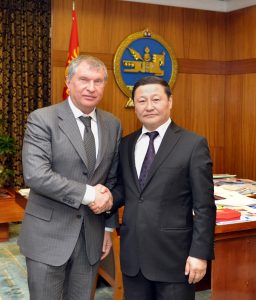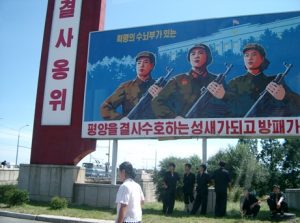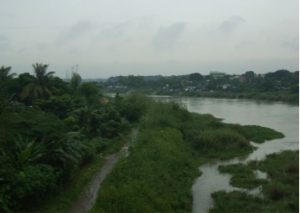Big Noise, Big Settlement: the Logic of Claims-making in China
Memo #308 By Sophia Woodman – Sophia.Woodman [at] ed.ac.uk The twenty-fifth anniversary of China’s nationwide democracy movement and its suppression in June 1989 was marked in the mainland by an imposed silence. Revisiting the “verdict” that the demonstrations were a “counterrevolutionary rebellion” does not appear to be on the horizon. But this does not mean […]
Are Chinese Citizens becoming more Assertive? Perspectives from the (Limited) Data
Memo #307 By Sophia Woodman – Sophia.Woodman [at] ed.ac.uk The last decade has seen an explosion of academic and media reporting about protests in China. Chinese citizens’ access to social media makes it harder for the authorities to suppress information about unrest. Even when mainstream media reporting is censored, often the news of an event […]
Charging Beijing’s Electric Vehicles Policy
Memo #306 By Marc McCrum – mbmccrum [at] alumni.ubc.ca and Grégoire-François Legault – gregoire.legault [at] alumni.ubc.ca According to the World Bank, Beijing’s poor air quality costs $300bn a year in healthcare costs and premature deaths. Of Beijing’s air pollution, over 30% is estimated to be the direct result of vehicle exhaust. In September 2013, as […]
Counter-Insurgency in Afghanistan: Whose Violence is it Anyway?
Memo #305 By Dur-e-Aden – dur-e-aden [at] hotmail.com While fighting an insurgency, it is important never to harm civilians. Doing so will increase recruitment for insurgent groups and result in fuelling the conflict. This is known as the “population-centric” counter-insurgency doctrine. By this logic, it also follows that if insurgents use violence on the local […]
Sustainable Tourism Governance in Bulacan Province: Practical Steps towards Collaboration
Memo #304 By Rosa Hsuan-Ju Shih – rosa.hj.shih [at] gmail.com With eco-tourism and cultural tourism gaining ground in Bulacan Province, Philippines, sustainable development will be a challenge so long as tourism development itself remains a fragmented process without a guiding framework. How best to define “sustainable tourism development” is one immediate challenge facing decision-makers and stakeholders […]
The Thai Political Crisis of 2014: Necessary Cultural and Historical Background
Memo #303 By Jim Placzek – james.placzek [at] ubc.ca The key to understanding the current crisis in Thailand is Thai national identity. For decades a government office has been successfully promoting symbols of this identity. The central symbol of that identity is the monarchy. The elite of Thailand, including the military, have been called “the […]
Suicide Protesters in Eastern Tibet: The Shifting Story of a People’s Tragedy
Memo #302 By Antonio Terrone – a-terrone [at] northwestern.edu The recent wave of self-immolations across the Eastern Tibetan regions of the People’s Republic of China continues to leave the world in dismay for both its violence and determination. They also represent a new shift in terms of the demography of protesters in Tibetan society. Among […]
By Pipe and Rail: Russia in Search of Shorter Routes to Asian Markets
Memo #301 Putin Prioritizes Geo-Economics over Geo-Politics By Mendee Jargalsaikhan – mendee [at] alumni.ubc.ca Russia’s largest state-owned oil giants, Transneft and Rosneft, as well as Russian railroad authorities are again eyeing Mongolian routes as the shortest, most efficient, and safest way to Asian markets. Russia’s previous transport options to these markets—through the Russian Far East (RFE), […]
Power in a Black Box: Kim Jong-Un’s Rule in North Korea
Memo #300 By Isozaki Atsuhito Most observers expected that the seven high officials accompanying the motor hearse of Kim Jong-Il the Supreme Leader of the Democratic People’s Republic of Korea in December 2011 would become the core support of the young successor, Kim Jong-Un. Some even saw the possibility of the North Korea ruling system […]
The Business of Saving the Angat
Memo #299 By Sarah Thomas – sarah.thomas [at] alumni.ubc.ca Over 99 percent of all businesses in the Philippines are small and medium enterprises (SMEs) and they represent seventy percent of the country’s labour force. With such numbers, while the environmental impact of small and medium enterprises is not well known, one can surmise that it […]
